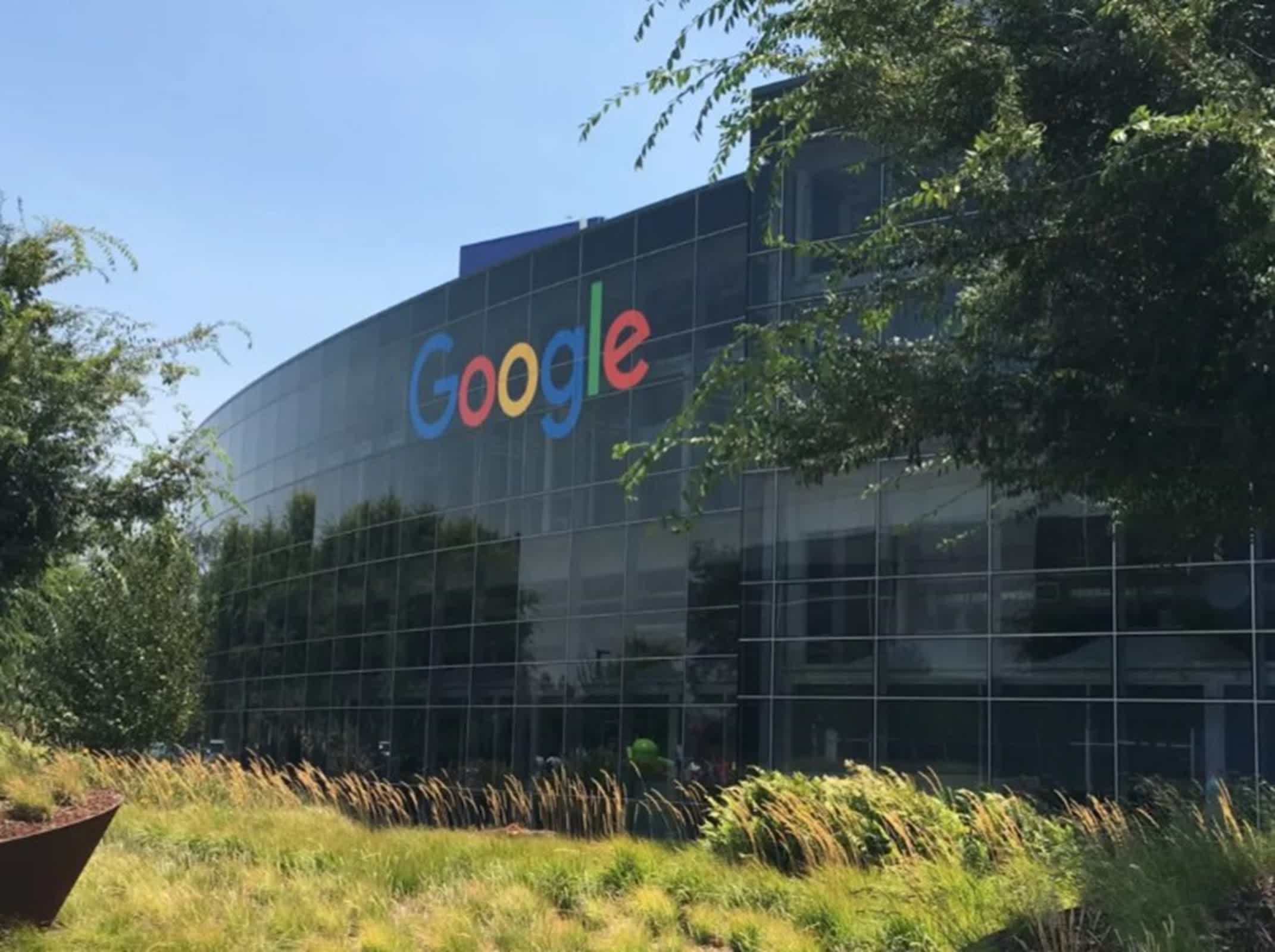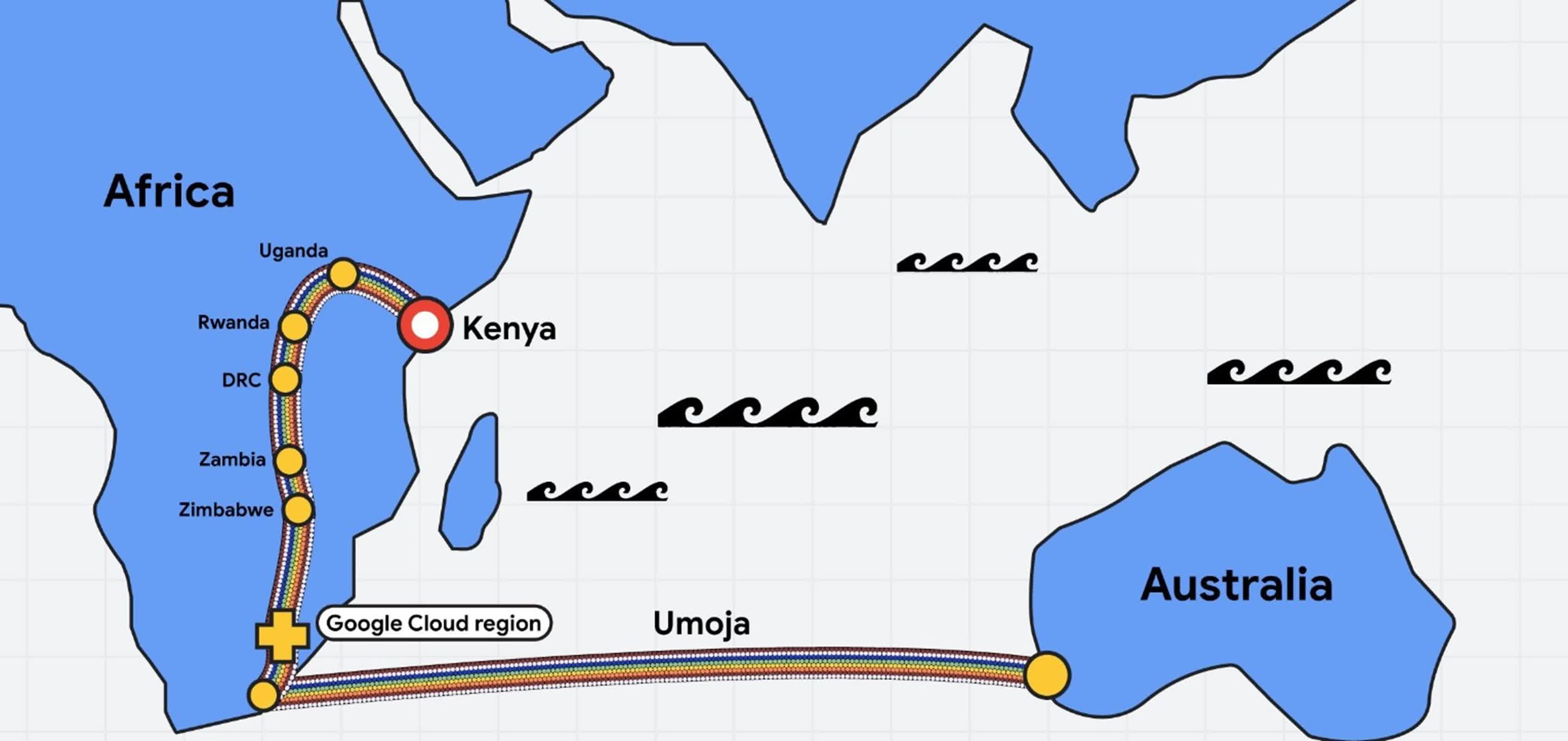Why it matters: Google already has a significant presence in Africa, but this new undersea cable will extend its influence on the continent, particularly in Kenya where engineers will anchor the cable. Alphabet has invested significantly in improving connectivity infrastructure worldwide to broaden its footprint. Emerging markets hold great potential. Google estimates that in Africa alone, 300 million people will come online over the next five years.
Seeking to expand its already significant presence in Africa, Google has announced it is building the first-ever fiber optic route to connect Africa with Australia. The "Umoja cable route" will anchor in Kenya, pass through Uganda, Rwanda, the Democratic Republic of the Congo, Zambia, Zimbabwe, and South Africa, and then cross the Indian Ocean to reach Australia.
Google collaborated with Liquid Intelligent Technologies to chart the most scalable route across the continent, including access points that give other countries entry to the network and enable them to more reliably connect with each other and the rest of the world.
"Africa's major cities including Nairobi, Kampala, Kigali, Lubumbashi, Lusaka, and Harare will no longer be hard-to-reach endpoints remote from the coastal landing sites that connect Africa to the world," said Strive Masiyiwa, Chairman and founder of Liquid Intelligent Technologies. "They are now stations on a data superhighway that can carry thousands of times more traffic than currently reaches here."

The terrestrial part of the project is already complete. Now, the hardest part of the work begins as engineers channel the cable across the Indian Ocean to Perth, Australia. It's a complex task, so there is no confirmed timeline for completion.
Additionally, Google plans to collaborate with the Kenyan government on cybersecurity, data-driven innovation, digital upskilling, and deploying AI for societal benefits. For example, the Department of Immigration & Citizen Services is already evaluating Google Cloud's CyberShield solution for its eCitizen platform.
Google has been expanding its presence on the African continent since 2007, when it opened its first Sub-Saharan Africa office in Nairobi. It then went on to partner with governments from countries across Africa on numerous digital initiatives. In 2021, it committed to infuse $1 billion in Africa over five years in several areas, including improved connectivity and startup funding. Since then, it has invested more than $900 million in the region and expects to fulfill its commitment by 2026.
The search giant has also invested considerably in other cabling projects, including Equiano, a new private subsea cable that will connect Portugal and South Africa, which it announced in 2019. Equiano starts in Western Europe and runs along the West Coast of Africa, between Portugal and South Africa, with branching units used to extend connectivity to additional African countries. Equiano was Google's third private international cable, after Dunant and Curie, and its 14th subsea cable investment.
